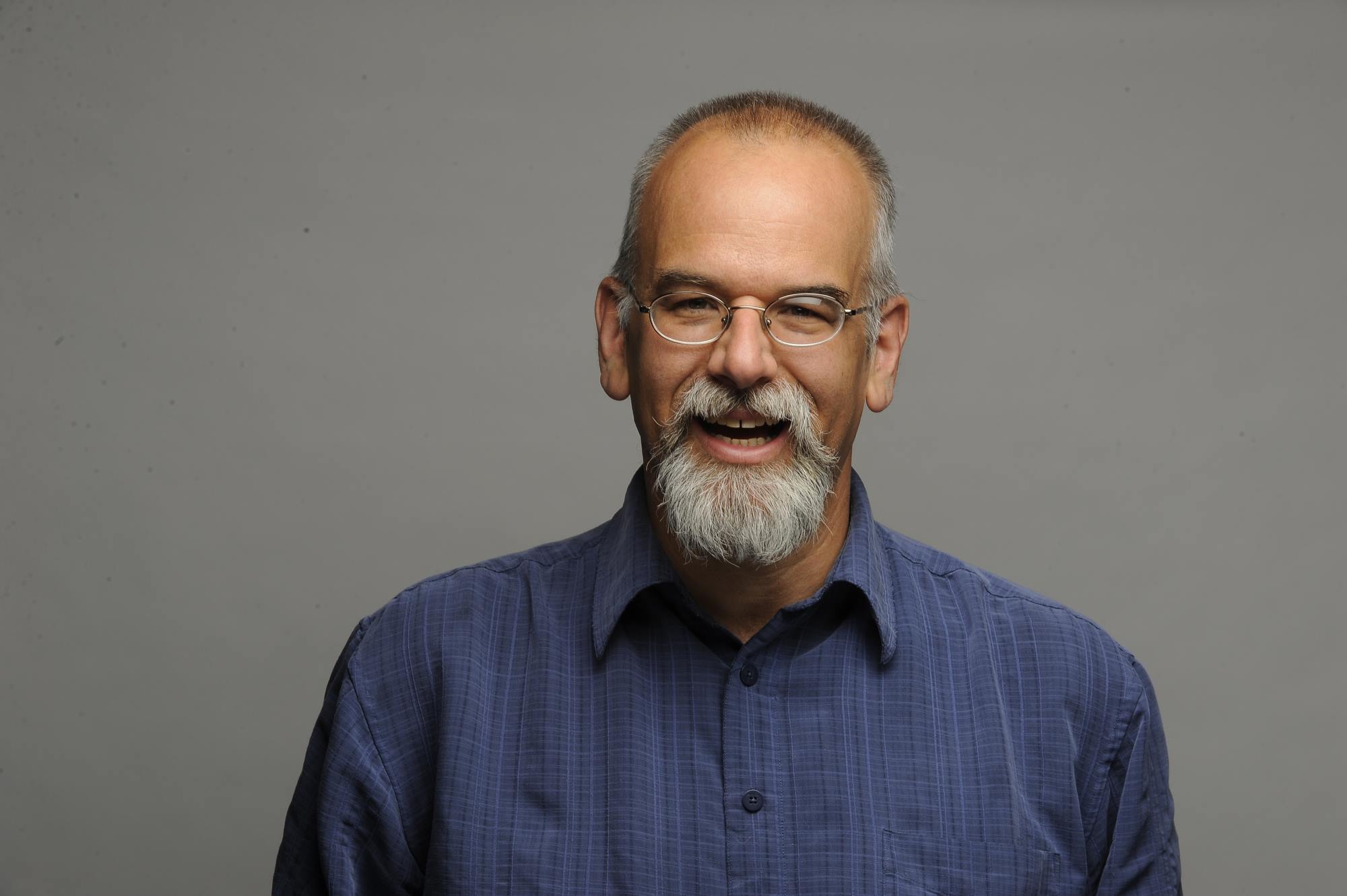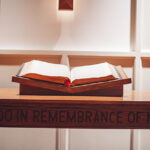
Don’t panic. While research shows confusion among evangelicals over core Christian doctrine, there’s hope for your congregation.
By Bob Smietana
Nathan Finn loves to talk about heresy.
Finn, a church historian and dean of the school of theology and missions at Union University in Jackson, Tennessee, says he often gets questions about heresy from students or pastors.
They’re often worried someone in their church is a heretic. Most of the time he tells them not to panic.
There’s a difference between a Christian who is confused or ill-informed, he says, and a real live heretic.
“A difference of opinion does not a heresy make,” says Finn.
Finn’s on a crusade these days to safeguard the term “heresy.” He believes it’s often misused to turn minor disagreements into major feuds over faith.
A heresy, he says, is a belief that denies a core teaching of the Christian faith and is worthy of condemnation.
Denying the resurrection of Jesus or rejecting the Trinity is a heresy, he says. Being confused about how the Trinity works is not.
“We are talking about the difference between a Christian and not being a Christian,” he says.
The most persistent heresies in church history revolved around the nature of God and the identity of Jesus, says Finn.
Among them are:
- The idea that Jesus is just a man.
- The idea that a generic God rules over the world in a detached way.
- The idea that humans are inherently good, and if we work hard enough we will have a blissful afterlife.
- The idea that Jesus didn’t rise from the dead.
A new study from Lifeway Research found some of those heresies still persist. Even churchgoers and those with evangelical beliefs can be confused about the details of Christian theology, the study found.
Researchers surveyed Americans with evangelical beliefs and those who attend worship services at least once a month as part of a larger survey about American views on Christian theology.
Lifeway Research found 95 percent of those with evangelical beliefs say the Bible alone is the written Word of God.
They also believe there is only one God in three persons (97 percent), that the resurrection of Jesus really happened (98 percent), and that Jesus was both truly God and truly man (85 percent).
Churchgoers as a whole agree. Many (77 percent) believe the Bible alone is the written Word of God, that there is only one God in three persons (94 percent), that the resurrection actually happened (91 percent), and that Jesus was truly God and truly man (84 percent).
Both groups are confused by the nature of the Trinity. Seventy-one percent of those with evangelical beliefs and 67 percent of churchgoers say Jesus was the “first and greatest being created by God.”
Fifty-six percent of those with evangelical beliefs and 63 percent of churchgoers say the Holy Spirit “is a force but is not a personal being.”
Distorted theology
Brandon Smith, co-host of the Word Matters podcast, saw this confusion firsthand a few years ago while serving at a church in Texas.
Another pastor on staff was teaching a Sunday night Bible study on the first chapter of Colossians. He read from Colossians 1:15, which says of Jesus, “He is the image of the invisible God, the firstborn over all creation.”
The pastor then asked the class, “What does it mean for Jesus to be firstborn?”
A longtime church member, who helped run the kids’ ministry, spoke up, says Smith.
“She said, ‘It means Jesus was created before any of us were,’” he says.
The answer shocked Smith, but no one else in the class seemed to notice. One of the pastors then quickly explained why that statement was incorrect.
He pointed the class to John 1:1-14, which explains that Jesus was with God and was God from the beginning.
Saying that Jesus was created first by God might sound right, but it distorts our understanding of the Trinity, says Smith.
Smith says pastors can’t take for granted that people in the pews understand the details of Christian doctrine—even basic beliefs like the Trinity.
“Our churches are often starved for theological training because pastors are simply trying to help people make it week-to-week, and rightfully so,” Smith says.
“It made me realize that some of the doctrines pastors and Christian leaders teach are not fully communicated to the congregation in a way they can understand.”
Derwin Gray, pastor of Transformation Church in Indian Land, South Carolina, says pastors who want to teach theology, especially in sermons, may feel like they’re swimming upstream.
Church members often expect practical, self-help sermons that show how Christianity can improve their lives, he says. And pastors at times neglect to show how theology connects to everyday life.
“Sadly, most of what I see happening is motivational, inspirational preaching that’s not rooted in Christ,” he says. “It’s, ‘Here’s how to be like David so you can slay your Goliaths and get your best life now.’”
Gray, author of The High-Definition Leader: Building Multiethnic Churches in a Multiethnic World, believes theology always has a practical application.
But that application has to connect real life to doctrine, he says. For inspiration, he looks to the Apostle Paul, whose writings were often rooted in real-life concerns.
He points to Romans 3:21-22: “But now, apart from the law, God’s righteousness has been revealed—attested by the Law and Prophets—that is, God’s righteousness through faith in Jesus Christ, to all who believe, since there is no distinction.”
That theological belief was used to address conflict in the church at Rome over ethnic differences, says Gray.
“His point was that righteousness of Christ makes a new community—therefore we don’t have to look down on each other,” says Gray.
Gray’s own interest in theology was rooted in practical concerns as well. He grew up in a Jehovah’s Witness home, then attended a Mormon university.
When he accepted Christ as an adult, he had to figure out doctrines like the Trinity, in order to explain his new faith to his family and friends.
So he devoured books on theology and learned from Christian leaders who knew more about theology than he did.
Most of his sermons weave theological concepts with biblical teaching. He often uses theological terms—like the hypostatic union, which explains the unity between the divine and human natures of Christ—during sermons, with a word of explanation.
The church’s small groups all use study questions based on the sermons, which also include theological details.
Pastors shouldn’t be afraid to talk about theology, because people in the pew want to learn all they can about God, he says. And they want to know how those truths about God connect to real life.
“I like to tell our church, ‘I am a theologian who loves to preach—so I get a chance to talk about great doctrines in the context of a messy world,’” he says.
Confusion persists among Americans
LifeWay’s survey found many Americans in general are also confused about theology.
Seven out of 10 Americans (69 percent) agree there is one true God in three persons: God the Father, God the Son, and God the Holy Spirit. Six in 10 say Jesus is both divine and human (61 percent).
More than half (52 percent) of Americans say Jesus is the first and greatest being created by God. And 56 percent say the Holy Spirit is a force rather than a person.
The Holy Spirit seems to be particularly confusing: A quarter (28 percent) says the Spirit is a divine being but not equal to God the Father and Jesus. Half (51 percent) disagree. Twenty-one percent are not sure.
Many Americans also believe salvation requires good works. Three-quarters of Americans (77 percent) say people must contribute their own effort for personal salvation. Half of Americans (52 percent) say good deeds help them earn a spot in heaven.
Scott McConnell, executive director of Lifeway Research, says most Americans still identify as Christians. But they seem to be confused about some of the details of their faith.
“Most people are OK with having contradictory and incompatible beliefs,” McConnell says.
Justin Holcomb, author of Know the Heretics, says many people have incomplete or oversimplified theological views. Theological concepts, like the Trinity, are hard to understand, he says. And it’s easy to get them wrong.
That’s what happened with many heretics in Christian history, says Holcomb. They were often well-intentioned people who made critical errors.
“They were asking important questions but they were giving wrong answers,” he says.
How to treat bad theology
To teach theology, churches have developed tools to help people learn the faith, says Holcomb. Some churches recite a creed or statement of belief in worship.
Others have put their statement of faith into sets of questions and answers that are easy to remember.
Classes on theology are also helpful, says Casey Barton, pastor of Hilmar Covenant Church, in Hilmar, California.
Barton runs a series of classes on theology each year, most about four or five weeks long. Recent topics have included the atonement and Christian understandings of marriage. In every class, he’s always trying to point people back to the Bible.
Teaching theology, he says, helps people understand the nature of God and their own identity.
“This is who God is and this is who you are as the people of God,” he says.
Barton also tries to weave theology into his sermons—often using theological terms and defining them as he preaches.
When he sees bad theology, he tries to handle it with grace, by explaining the orthodox view of a particular topic and why that view matters.
“I tell them, ‘I think this is more faithful to what Scripture says,’” he says. “My role is to bear witness to sound doctrine.”
Finn believes every church needs an intentional strategy for teaching theology. That strategy can include using hymns, Bible studies, even worship elements like creeds or statements of belief to help teach theology.
Finn also reminds pastors that many Christians haven’t been taught doctrine or theology. So they may have picked up some incomplete or mistaken views along the way.
When he talks to pastors who are concerned that someone in their church has a heretical belief, Finn generally asks two questions:
- “How does the belief in question contradict the core of the Christian faith?”
- “What role does a person who holds the belief in question play in the life of the church?”
Those questions can help a pastor know how to proceed.
Smith says that’s what happened in his church in Texas. A pastor graciously explained why the church member was wrong and helped her understand the orthodox position more clearly.
“I don’t think she felt accused or condemned at all,” he says. “We lovingly just moved the conversation toward truth, but didn’t call her out.”
If new Christians in the church are confused about the Trinity, they might need more teaching on the subject, says Finn. But if an older church member or someone in a leadership role denies a core doctrine like the Trinity, that needs more direct intervention.
More than anything, Finn says, pastors shouldn’t be afraid to talk about theology. Church members want to know the truth about God, he says. There’s usually no need to oversimplify things, he says.
Thankfully, there is an “embarrassment of riches” for churches to draw upon when teaching theology, says Aaron Armstrong, brand manager for The Gospel Project, a Bible study curriculum designed to teach essential theological doctrines of the Christian faith.
Armstrong says there are many easy-to-access books, videos, and other resources designed to help Christians understand theology better.
Church members can also listen to podcasts such as Word Matters or seminary lectures through services like iTunesU. And pastors can include recommended resources for church members in their sermons.
“Give them an insight into what you read and where you are coming from,” he says.
And pastors shouldn’t downplay theology in their sermons.
“We need pastors to stop saying they aren’t theologians,” he says. “If you’re saying anything about what God is like, you are making a theological statement. You still have things to say that are true about God.”

Bob Smietana
Bob is the former senior writer for Lifeway Research. In September 2018, he joined Religion News Service, where he currently serves as a national writer.











